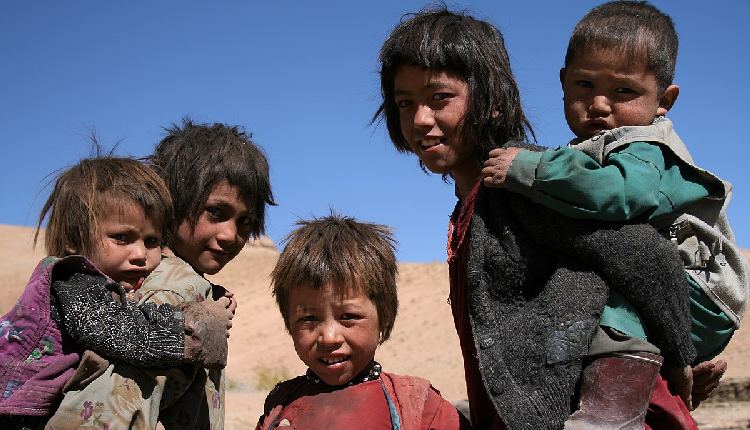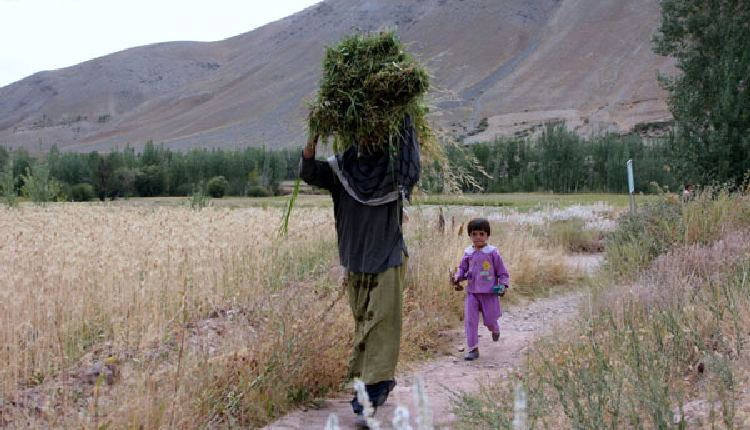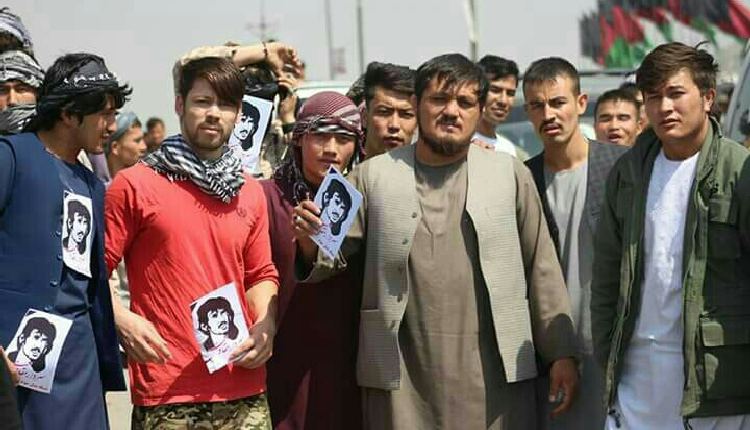Hazara, an ethnic group victim of persecution and genocide in Afghanistan

Who are the Hazaras? Because they are victims of persecution and genocide in Afghanistan? Here is the history of this ethnic group
of Sara Del Dot
It was the 30 September 2022. To Kabul, in Afghanistan, a man blew himself up in a suicide attack in front of a school in the Dasht-e-Barchi neighborhood, where predominantly Hazara people live, killing 53 girls and boys and hurting more 82. They were there to attend classes, study, give exams.
They were almost all Hazara. In the following days, various demonstrations were held across the country, to the sound of Stop Hazara Genocide and Let Afghan Girls Learn. They weren't the first and they wouldn't be the last either. Just a few months later, two other attacks in as many school facilities. Six dead.
Because the persecution of the Hazara people is an issue that starts from afar.
Hazara, story of a resistant people
«I attended university in Kabul, I was with a colleague of mine and we had to take an exam. I was much more prepared, but I received a very low rating. When I pointed it out, the professor replied that he would give the grades he wanted. Just because I was of Hazara ethnicity and she wasn't. And this happens very often, Hazara boys and girls constantly experience episodes of discrimination of this kind".
Shahrbanu Haidari is a girl from 33 years old originally from the province of Bamyan, in the center of the Hazarjat region (the Hazaristan) and today a Hazara cultural center, a place that also became sadly famous in the West in 2001 for destruction, by the Taliban, of the two giant Buddhas carved into the rock.
She is the one who tells what it means to belong to an ethnic group that has always been accustomed to discrimination, which can manifest itself from the smallest gesture, with an unfair grade assigned on an exam, up to abuse, brutal violence and killings. That of the Hazara people is in fact the story of a resistance passed through all the pain of history. Even that of a real extermination.

Who are the Hazaras
The Hazaras are an ethnic group of predominantly Shia Islamic religion. They live mainly in Afghanistan (country with a Sunni majority), some also in Pakistan and Iran, where they found refuge.
There is no exact census, but up to about 140 years ago they constituted approximately 65% of the inhabitants of Afghanistan. Then, target of Islamist terrorist attacks 1800, the newly installed King Abdul Rahman began an ethnic and religious persecution that led to the extermination of approximately 60% of their population, the expropriation of lands given to Pashtun farmers, the enslavement of women and children, the isolation of their communities far from the centers in which they had lived until then.
«The Hazaras were forcibly removed from their lands and moved into the mountains, in much poorer areas. Being Shiites they are considered infidels», spiega Haidari.
Since then the Hazara people have always struggled to emerge from isolation and discrimination. Falling back into the spiral of violence and persecution after the first seizure of power by the Taliban in the 1990s and then in 2021, with their return to the leadership of the country.
The extermination of the Hazaras has in fact continued and continues today, at the hands of Daesh e, precisely, of the Taliban, who promoted a real ethnic cleansing, and when they took power in the 1990s (to remember the Mazar-i Sharif massacre in 1998, when they exterminated among the 8 e i 10 thousand Hazaras), both after August 2021, with their return to the leadership of the country, as demonstrated by the attacks of recent times.
«In the last ten years they have been killed and persecuted by Daesh and the Taliban even on board the buses that connect Kabul to the Hazara provinces. They are recognized by their appearance, especially the more elongated shape of the eyes which clearly characterizes them".
Claudio Concas, PhD student at the Bicocca University of Milan and author of the book "Voices from Hazaristan", part of the very little literature on the Hazara people present in Italy and in Europe in general, he spent years interviewing and speaking with dozens of people to understand as much as possible about their history and present. «It is important that we understand who the Hazaras are and what they have suffered, it takes awareness, we must recognize what is a real genocide".

The value of education in Hazara culture
The men, but especially Hazara women, they see education as the solution to their problems. That same education that seems to be the number one enemy of those who govern the country today and of Islamic extremists.
«Most Hazaras have never had problems getting girls to go to school and university and also getting them to work. Their opinion matters and so does their role within society.", Narrated by Sharbahanu Haidari. A vision in contrast to that of those who have declared war on education.
«Unlike twenty years ago, today there are many people in Afghanistan who are internally experiencing very different forms of resistance", says Concas. «Online classes, study centers, scholarships abroad. Many are trying to put into practice the awareness that a different society is really possible".
«If you are looking for a job in Afghanistan, it is difficult for a Hazara to get one in decision-making roles». Racconta Haidari. «This is why we have always tried to study more and more. Because education has always been our means to find better jobs, to find ways of emancipation. Even trying to get scholarships outside the country, going to school, at the University".
Afghanistan: what changed for the Hazaras after August 2021
After 2021 everything fell into chaos. «In the last two years there have been more 50 attacks against Hazaras", explains Concas.
Since their regaining power, the Taliban immediately resumed their persecution of the Hazaras, hitting first those who were in positions of decision-making or power, shifting their roles, firing them and replacing them with other people, even if less competent.
«The Taliban now represents both power and security. Therefore, basically, they can do what they want.", dice.
«The Hazaras no longer have access to justice either. They cannot appeal to court for negative arbitrary decisions affecting them. Even if they appeared before a judge for an injustice suffered, no one could help them. And also with regards to humanitarian aid, are disadvantaged. Nobody sees us, not even the journalists who often look at us and don't even realize that we are Afghans".
The Taliban are taking everything away, the opportunity to grow, of working. And they bomb schools to prevent girls from learning. Also because of this, many Hazaras have left the country embarking on dangerous migratory paths which have not always distanced them from the discrimination they suffered in their country of origin.
Shahrbanu was also forced to leave. She arrived in Italy with a government evacuation program on 26 August 2021, a few days after the Taliban took power in Kabul following the retreat of American troops. Today she is attending a master's degree in peace studies at the American University of Rome and is president of a solidarity association for Afghan women created together with six other companions.
«It's very difficult for me. If I think about my people, to my family... Even now that I am trying to research the situation of the Hazaras in my studies, It's very emotionally heavy. When I try to write or talk about my people sometimes I just have to stop and distract myself because I get sad. But it's my story and I have to do it. Even if I'm angry. The world must remember us. If they forget us, the Taliban will do whatever they want with us".